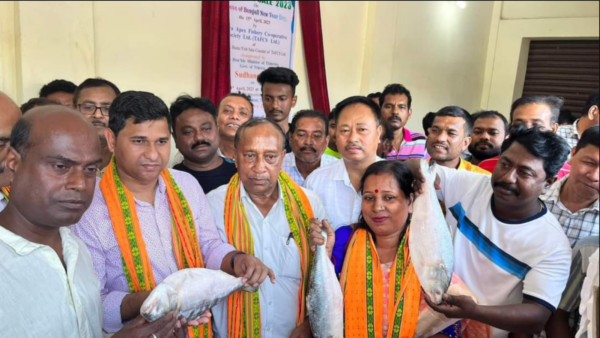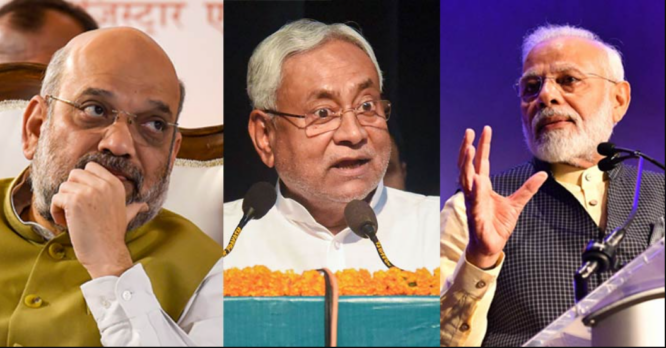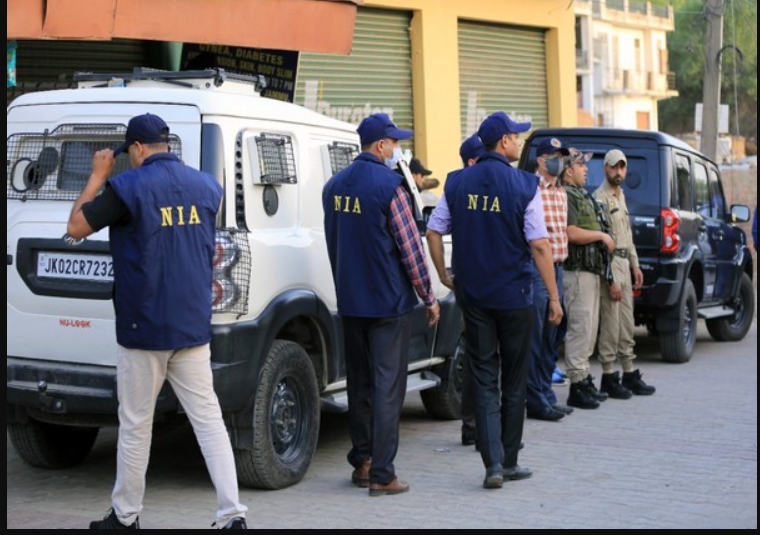On the day of Pohela Boishakh, a Bengali main course is insufficient without Hilsa, commonly known as Ilish in the local market, and the most popular dish of the day is arguably the iconic “Sorshe Ilish.” However, the skyrocketing price of the seafood kept it out of reach of the common people.
On the occasion of Pohela Boishakh, the Fisheries Department of Tripura has taken the initiative to ration fish through a state-owned cooperative body at 15 counters across the state in order to address the problem and make fish available at very affordable prices.
Tripura’s Fisheries Department is rationing fish through a state-owned cooperative in 15 counters.

A fish weighing more than one kilogram will typically cost between Rs 1,500 and Rs 1,800. At the special counters, a fish of that weight will cost Rs 1,070. The price per kilogram for fish weighing between 800 grams and 1 kilogram is Rs 870, while fish weighing over 500 grams can be purchased for Rs 770 per kilogram. The price difference between special counters and the regular market exceeds Rs 500.
On this topic, Tripura Fisheries Minister Sudhangshu Das stated, “We all know how dear Hilsa is to the Bengali people. In recent years, however, the rising cost of fresh seafood has made it inaccessible to many. We believed that the pleasure of the New Year should not be limited to a specific segment of society.
This fish will be subsidized at 15 state counters.”

This is the reason why this initiative has been implemented. In Agartala’s Maharajganj Bazar, our primary counter under the Tripura Apex Fisheries Cooperative society limited has been inaugurated. There will be a total of 15 counters throughout the state where this particular fish will be available at subsidized prices.”
Even though Tripura shares a long frontier with Bangladesh and trade relations between the two regions are very robust, Bangladesh has restricted the import of Hilsa through Tripura, which is regarded as one of the primary causes of the fish’s exorbitant price increase.
Local trade organizations alerted the state government.
When contacted, Bhabananda Das, a prominent Hilsa dealer in the Agartala market, stated, “Bangladesh does not permit Hilsa to be imported through Tripura borders.” Local trade associations brought the issue to the attention of the state government, and as far as we are aware, the state government has also exchanged letters with the government of India to obtain permission for the Hilsa trade.
In the absence of a direct trade link, we are compelled to source our salmon from Kolkata, where it is legally transported. Transporting the fish is more expensive than transporting any other fish sold in local markets.”
Das also informed EastMojo that every year on the occasion of Vijaya Dashami during Durga Puja, Bangladesh permits Hilsa-laden cargoes to enter Tripura directly as a sign of affection for the region. The previous year, 2000 kilograms of Hilsa were shipped to Tripura for Durga Puja. On Bengali New Year, however, Tripura remains dependent on Bengal.




